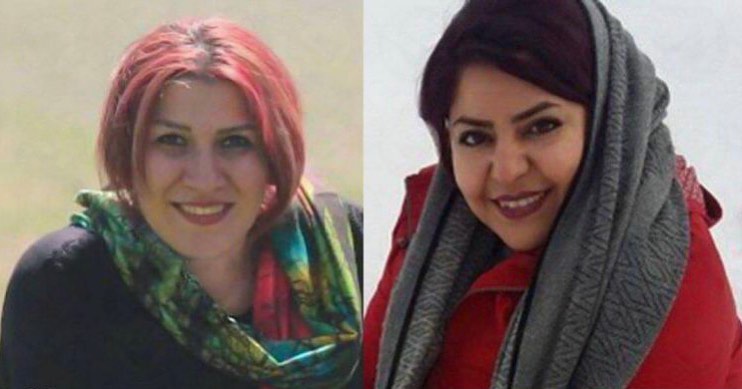Source: www.hra-news.org

HRANA ‒ Branch 36 of the Tehran Court of Appeals upheld the conviction of Sophia Mobini and Negin Tadrisi, two Baha’i citizens. They had previously been sentenced by Branch 28 of the Tehran Revolutionary Court to five years in prison each.
According to HRANA, the news arm of Human Rights Activists (HRA) in Iran, the conviction of Sophia Mobeini and Negin Tadrisi, two Baha’i citizens, was confirmed by Branch 36 of the Tehran Court of Appeals.
Sophia Mobeini and Negin Tadrisi were convicted in the first stage of their prosecution by Branch 28 of the Revolutionary Court of Tehran, presided over by Judge Amouzad. They each were charged with “acting against national security through the administration of the Baha’i organization, and promoting education,” under Article 498 of the Islamic Penal Code.
Earlier, a source familiar with the situation of these Baha’i citizens told HRANA about the sentence: “Although previously, the indictment of Sophia Mobeini and Negin Tadrisis had alleged their charges to be “administration of the Baha’i organization” in a court presided by Judge Moghiseh, they were sentenced to ten and five years, respectively, under Article 498 of the Islamic Penal Code in the exact same court, without the correct understanding of the accusation Code 499 of the Islamic Penal Code, which is related to membership in the illegal Baha’i group with the aim of disrupting national security. After their objection to the verdict issued by Branch 36 of the Tehran Court of Appeals, the verdict was challenged, and the case was referred to the same branch for reconsideration. “Finally, Judge Amouzad, who replaced Judge Moghiseh, sentenced each of these citizens to five years in prison.”
The verdict handed down by Judge Moghiseh included charges of “paying tuition for an Afghan citizen’s language class, giving psychological counseling on behavioral and sexual relationships and on economical matters, and writing this sentence in a private personal note book: “People in the area are in need of education.”
Sophia Mobini and Negin Tadrisi were arrested by intelligence agents on November 26, 2017, during a ceremony marking the 200th birthday of Baha’u’llah, the prophet of the Baha’i Faith, and transferred to Evin Prison. These Baha’i citizens were temporarily released from prison on bail pending trial.
Baha’i citizens in Iran have been deprived of the right to practice their religious beliefs. This systematic deprivation of liberty occurs even though Article 18 of the Universal Declaration of Human Rights and Article 18 of the International Covenant on Civil and Political Rights entitle any individual to freedom of religion and belief and also freedom to express it individually or collectively, in public or in private.
According to unofficial sources, there are more than 300,000 Baha’is in Iran, but Iran’s constitution only recognizes Islam, Christianity, Judaism, and Zoroastrianism and does not recognize the Baha’i Faith. For this reason, the rights of Baha’is in Iran have been systematically violated in previous years.
Leave a Reply